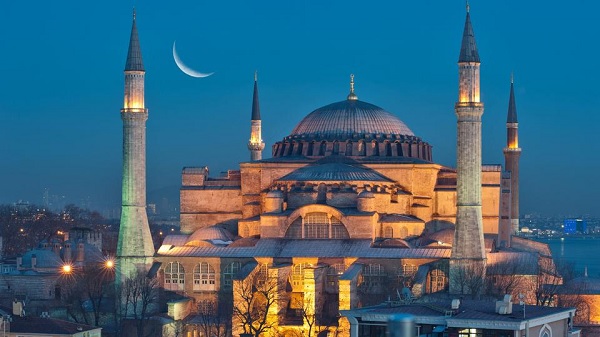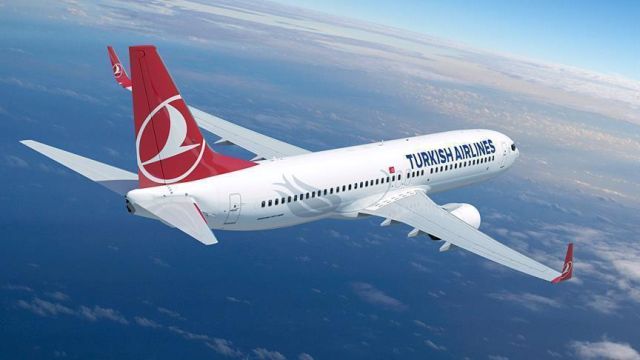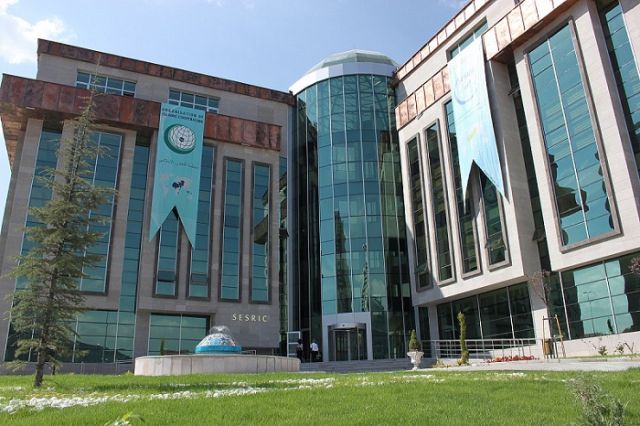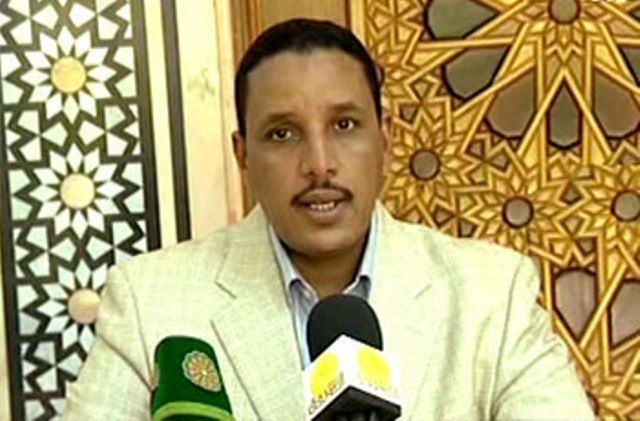
by admin | May 25, 2021 | Muslim World
 By Haider Abbas
By Haider Abbas
When Rex Tillerson, US former Secretary of state, is said to have ‘stopped in the heels’ the Kingdom of Saudi Arabia (KSA) and United Arab Emirates (UAE) attempt to invade Qatar in 2017, according to TheIntercept, on August 1, 2018, something which has been reiterated recently by Qatar defence minister Khalid Al Attiya, on September28, 2020 in MiddleEastEye, but for the eventuality Qatar too had ‘pulled-up-its-socks’, as in order to fortify its defence, and had already invited Turkey to make its military base in Doha, the capital of Qatar, as per Hurriyetdailynews on August 14, 2019.
Turkish soldiers were stationed in Doha since 2015 and had been performing their duties in 47 degrees temperature. Turkish president Tayyip Erdogan had called it a ‘symbol of brotherhood’. Qatar news channel Al Jazeera on November 27, 2019 tells that Erdogan had addressed his 5000 Turkish soldiers, ‘“It [Turkey-Qatar Combined Joint Force Command] serves stability and peace of not only Qatar but also the Gulf region, after meeting troops at the newly finished base. The command centre was named after Khalid bin Walid – one of the Islamic world’s greatest generals who commanded armies of the Prophet Muhammad in the seventh century. He was so adept in battle, the Prophet Muhammad gave him the name the “Unsheathed Sword of Allah”’. Interestingly, Qatar also has the largest US military base in Al Udeid which has more than 10,000 soldiers, informs WashingtonPost on August 21, 2019.
It is this Turkish military base which is in the eye of storm, as UAE minister of state for foreign affairs Anwar Gargash, in GulfNews on October 11, 2020, has called Turkish military base in Doha as meant to destabilise the region and something which contributes to ‘negative-polarisation’. ‘In a tweet minister said “The Turkish military presence in the Arab Gulf is an emergency, and it contributes to negative polarisation in the region,” adding “It is the decision of ruling elites in the two countries that reinforces the policy of polarisation and axes and does not take into account the sovereignty of states and the interests of the Gulf and its peoples, so our region does not need regional garrisons and reproduce colonial relations dating back to a previous era.”’ This reference of ‘colonial’ is where the catch lies as it obliquely points to the gone Turkish empire, and which, considers Qatar as it vicegerent as it was from inside Turkish Palestine Israel was carved-out along with other 22 Arab states, after the first World-War, and which now, Turkey after a century, is trying to reclaim. The latest events are just adding to the already boiling situation as even while Armenia-Azerbaijan war raged, which ended in a ceasefire, and to an advantage to Tayyip Erdogan, he visited Doha on October 7, 2020 , tell Al Jazeera and which has led to Arab-states have ‘see-red’ as UAE and Bahrain are now in consonance with Israel as both have announced full-diplomatic ties, towards which Turkey has filed its opposition.
US is busy in its November 2020 elections, but whosoever between Donald Trump or Joseph Biden wins, the policy of US great support to Israel will always remain the same. The much touted Israel ‘annexation-plan’ of West Bank in Palestine will remain unchanged whether Israel PM Benjamin Netanyahu or its defense minister Benny Gantz or may be there anyone else be at the helm or not, and the US unwavering support to it will remain the same, whether there would be a change of guard in US or not. Turkey also has announced the capital of Israel as ‘Jerusalem is ours’, informed Times of Israel on October 1. 2020, thus, triggering what might be considered as the next focal point of a civilisational war. A response from Arab states, however, is expected to the trepid, even when the Jewish state of Israel is to bludgeon Al Aqsa Mosque into a rubble and make third-temple on it!
Turkey is however engaged into propelling Qatar to further heights as it is learnt from TRTWorld on October 10, 2020 that Turkey has entered into 12 billion USD contract with Qatar in warship building sector and has launched its first training warship to Qatar which is ‘ 90-metres-long and has 1,950 tons of full-load capacity. It can be used in weapon training and has a helipad for medium-size helicopters on the stern’. Erdogan, however, in a retort has said, ‘No one except for those making plans of chaos should be disturbed by Turkey and the Turkish military presence in the Gulf. ” No wonder, Turkey is now ‘trying its hand’ in defense production as its drones came much handy to Azerbaijan, according to MiddleEastMonitor on October 6, 2020. India has also signed a contract with Turkey of a 2.3 billion USD shipyard deal, tells TheEconomicTimes, on March 23, 2020 despite Turkey inclined towards Kashmir to the angst of India.
The US and Israel best stroke was that they made-believed Arab states by ‘crying-wolf’ to Iran and the states became more than convinced of the expansionist Iran, despite Arab states sponsoring an eight year Iraq war against Iran etc, but now Arab-states in order to equalise with Turkey are likely to format an Israeli-Arab NATO, as now the perceived threat from Turkey seem to have overshadowed Iran and US is more than likely to sponsor it, like it is slated to do in South China Sea, by the formation of India, Japan, US and Australia (QUAD) once after elections are done with.
Israel is now successfully driving into the head of Arab states that when Turkey can intend to claim Jerusalem back, obviously it would also stake claim over the Arab-states too. Qatar was not invaded then, who knows what unfolds anew after November 2020.
The writer is a former State Information Commissioner, India. He is a media analyst and writes on international politics.
———————————————————-
References:
1-https://theintercept.com/2018/08/01/rex-tillerson-qatar-saudi-uae/
2-https://www.middleeasteye.net/news/arabic-press-review-saudi-arabia-planned-occupy-qatar-claims-minister
3-https://www.hurriyetdailynews.com/new-military-base-in-qatar-to-inaugurate-in-autumn-145760
4-https://www.aljazeera.com/news/2019/11/25/erdogan-turkey-qatar-military-base-serves-regional-stability
5-https://www.washingtonpost.com/world/as-trump-tries-to-end-endless-wars-americas-biggest-mideast-base-is-getting-bigger/2019/08/20/47ac5854-bab4-11e9-8e83-4e6687e99814_story.html
6-https://gulfnews.com/world/gulf/uae-minister-anwar-gargash-turkish-army-presence-in-qatar-destabilises-region-1.1602395088572
7-https://www.aljazeera.com/news/2020/10/7/turkeys-erdogan-arrives-in-qatar-for-talks-with-sheikh-tamim
8-https://www.timesofisrael.com/jerusalem-is-our-city-turkeys-erdogan-declares/
9-https://www.trtworld.com/magazine/turkey-launches-first-training-warship-for-qatar-40446
10-https://www.middleeastmonitor.com/20201006-azerbaijan-acknowledges-use-of-turkey-drones-in-conflict-over-nagorno-karabakh/
11-https://economictimes.indiatimes.com/news/defence/india-to-go-ahead-with-2-3-billion-turkish-shipyard-deal/articleshow/74766428.cms

by admin | May 25, 2021 | Muslim World

Hagia Sophia
A Turkish court said on Friday it annulled a 1934 government decree turning Istanbul’s Hagia Sophia, or Ayasofya, into a museum, ruling it was unlawful, paving the way for the building’s conversion back into a mosque despite international warnings against such move.
Turkey’s President Recep Tayyip Erdogan told a press conference the first Muslim prayers would be held inside the building on July 24.
“Like all our mosques, the doors of Hagia Sophia will be wide open to locals and foreigners, Muslims and non-Muslims,” he added.
Built in the early 6th century, Hagia Sophia was once the main church and spiritual center of the Orthodox. After the Ottoman Empire (1290-1922) conquest of Constantinople in 1453, the Hagia Sophia was converted into a mosque, which lasted until the early 20th century. After the founding of the Republic of Turkey, the building, which witnessed the rise and fall of several empires, reopened as a museum and became a symbol of the blending of East and West cultures and one of Turkey’s most popular tourist attractions.
A brief history
Founded in 537 AD, Hagia Sophia was the architectural wonder of the world, the pinnacle of Byzantine architecture, and the largest church in the world for nearly a thousand years.
After 1453, Hagia Sophia was converted into a mosque and was the first Royal Mosque of Istanbul designated by Mehmed the Conqueror, also known as Sultan Mehmet II (1432-1481).
Hagia Sophia’s transformation is more “noble” than other buildings that were converted into mosques and renamed after the conquest. The new emperor did not rename it but changed Hagia Sophia to the Turkish spelling Aya Sofya. He allowed some Christian mosaics to remain, which he saw as guardians of the city.
The next turning point in Hagia Sophia’s fate came in 1935, when Kemal Ataturk, the founding father of Republic of Turkey, decided to secularize the Hagia Sophia and turn it into a museum, saying it should be a monument to “all civilizations,” welcoming visitors from all nations and faiths.
In urgent need of repair
But the building is in a more fragile state than it seems. Some historians believe that Hagia Sophia did not have a long-term plan to protect its buildings from earthquakes and mosaics-peeling. Some scholars have compared it to the “Taj Mahal in Istanbul,” and renovation is an emergency.
The damage to the Hagia Sophia happened quietly as time passed – large peeling ceilings, soggy walls, aging, faded paintings, over-burdened window frames that bent, dusty marble panels, and irreplaceable, non-renewable mosaics – all in desperate need of protection and repair.
Zeynep Ahunbay, an architecture professor in Istanbul, is known as Hagia Sophia’s “guardian angel” for being involved in the Hagia Sophia’s restoration since the 1990s. She said that funding for conservation is not always continuous.
“One year there is a budget, the next year there is none,” she said to Smithsonian Magazine. “We need a permanent restoration staff, conservators for the mosaics, frescoes, and masonry, and we need to have them continuously at work.”
“I am more interested in preserving Hagia Sophia as a cultural treasure,” Ahunbay said to the New York Times, “The best way to preserve and present it is by the museum function.”
Turkish law and agreements on monuments
The call to turn Hagia Sophia into a mosque appears to conflict with a number of domestic laws and some international conventions that the Turkish government has signed.
The Fourth Antiquities Code (1906) and Turkish Civil Code Law (1926) No. 1710, protected monuments as state properties, and established parameters for protection of historic buildings, such as Hagia Sophia, for most of the 20th century, said Cultural Property News.
In order to better deal with the increasing number of historic sites, in 1983, Law No. 2863 regarding the Protection of the Cultural and Natural Assets established both a Superior Counsel and Regional Counsels for the Protection of Cultural and Natural Assets of Turkey. This law places decision-making regarding the physical interference with, use, or change of purpose of cultural assets within the scope of the Ministry of Culture and Tourism in Turkey, which is directed to take advice from related professional institutions, such as museums, as Cultural Property News reported.
In the same year, Turkey ratified the Convention Concerning the Protection of the World Cultural and Natural Heritage (1972), an international convention that designates its member countries and areas to nominate World Heritage Sites, which included the Hagia Sophia. It also created the World Heritage Fund. The Convention states that while respecting national sovereignty, the signers to the Convention recognize that it is the duty of the international community as a whole to co-operate in protecting heritage.
Also, Turkey is a signatory to the Convention of the Architectural Heritage of Europe (1985), where it serves on the steering committee for Culture, Heritage, and Landscape.
Unclear future
In 2020, Hagia Sophia became the center of international discussion once again. UNESCO has expressed its concerns after Greece and Russia protested Turkey’s decision to convert Hagia Sophia into a mosque.
UNESCO said it “deeply regrets” the decision to turn the museum into a mosque and called on the Turkish authorities to “open a dialogue without delay.”
The organization had urged Turkey not to change its status without discussion.
Istanbul’s tourism industry has grown rapidly in recent years. Before the COVID-19 pandemic, Istanbul was the third most visited city in Europe and the tenth in the world, with foreign visitors contributing 81.8 percent of total tourism revenue, according to Tourism Review.
Hagia Sophia is also a natural backdrop for many films and television programs, such as “Skyfall” and “Argo,” as well as the humanistic documentary “Baraka.”
Gli, a cat born in the Hagia Sophia, is also a “big star” on social media representing the heritage site with guides of Hagia Sophia happy to share Gli’s story to visitors. Visitors are also very fond of taking photos with Gli that as one of the “guardians” of Hagia Sophia, is never afraid of taking photos with tourists.
Hagia Sophia’s Asian-European culture background and Gli seem to be on display for tourists from around the world, as a monument that opens its doors to everyone, including its animals. But will it continue to be so?
Comments on social media have been mixed. Many on Twitter expressed their views on hashtag Hagia Sophia, which is based in Turkey and can be given an identity by Turkey. However, others said that considering the number of mosques in Istanbul, there is no need to change Hagia Sophia into a mosque.
Although Turkey’s president has promised that Hagia Sophia will remain open to all visitors of all faiths, and Turkish officials said Christian emblems, including mosaics of the Virgin Mary which adorn its soaring golden dome, will not be removed, according to the BBC, many experts and industry insiders have expressed their concerns.
In a interview with the New York Times, Faruk Pekin, a leading tour guide, who specializes in cultural tours and led 80 nighttime tours of Hagia Sophia last year, said to be worried about the possibility of the mosaics being covered for Muslim prayers, including the seraphs high up at the base of the dome. Tourists and non-Muslims may be restricted to certain areas, he added.
Turkey’s most famous author, Orhan Pamuk said the decision would take away the “pride” some Turks had in being a secular Muslim nation.
“There are millions of secular Turks like me who are crying against this but their voices are not heard,” he told the BBC.

by admin | May 25, 2021 | Muslim World
 Ankara: Turkish Airlines, Turkey’s flag carrier air company, hosted in Istanbul 28,000 passengers from 28 countries in its stopover project over the past two years, the company said Friday.
Ankara: Turkish Airlines, Turkey’s flag carrier air company, hosted in Istanbul 28,000 passengers from 28 countries in its stopover project over the past two years, the company said Friday.
The national flag carrier added 16 countries, including Japan, China, and India, in its stopover service program, according to a statement from the company.
The free stopover accommodation service began in March 2017, the statement said.
“We aim to expand the scope of our project, which contributes to the development of our country’s tourism through new Istanbul Airport,” Ahmet Olmustur, Turkish Airlines’ chief marketing officer, said.
Turkish Airlines, founded in 1933 with a fleet of five aircraft, currently has more than 330 aircraft, including passenger and cargo planes.
It flies to 306 destinations in 124 countries. Last year, Turkish Airlines carried 75.2 million passengers with a seat occupancy rate of 82 percent.
—AA

by admin | May 25, 2021 | Muslim World

SESRIC Headquarters, Ankara, Turkey.
Ankara : The Statistical, Economic and Social Research and Training Centre for Islamic Countries (SESRIC) hosted the Third Global Meeting of the Expert Group on Refugee and Internally Displaced Persons Statistics (EGRIS) at its headquarters in Turkey’s capital Ankara on February 12-14.
Some 81 officials from EGRIS members, including representatives of national statistical offices and other relevant governmental bodies from 19 OIC countries, along with experts from 15 non-OIC member states, and 17 different regional and international organizations attended the meeting.
A meeting on Stateless Persons Statistics was also hosted on February 15, as well as the 10th Regional Workshop on the Experiences and Tools under MED-HIMS (Households International Migration Surveys in the Mediterranean countries – a regional program initiated by European Union) took place at SESRIC headquarters on February 14-16.
—AB/UNA-OIC

by admin | May 25, 2021 | Muslim World

Hamid Mumtaz
Khartoum : Turkey has an ongoing support in aspects of economy and diplomacy to Sudan in face of protests, a Sudanese minister said Tuesday.
“Turkey’s support to stabilization efforts in Sudan continues in the current political process,” Federal Government Minister Hamid Mumtaz told Sudan News Agency (SUNA).
Concluding a four-day visit in Turkey, Mumtaz met with Turkish Vice President Fuat Oktay to deliver a letter from Sudanese President Omer Al-Bashir to Turkish President Recep Tayyip Erdogan about bilateral relations between the two countries.
Mumtaz, also a representative of the Sudanese president, said Erdogan signed 22 agreements in economic and diplomatic fields during his visit to Sudan in 2017.
Sudan has been rocked by popular protests for the last two months, with demonstrators decrying al-Bashir’s failure to remedy the country’s longstanding economic woes.
A nation of 40 million people, Sudan has struggled to recover from the loss of three-quarters of its oil output – its main source of foreign currency – when South Sudan seceded in 2011.
—AB/UNA-OIC





